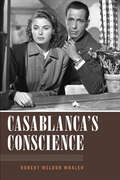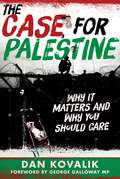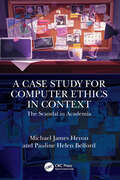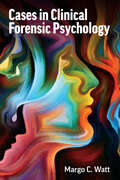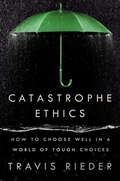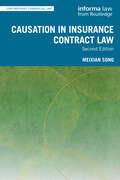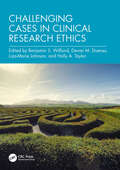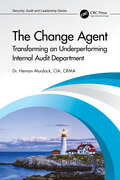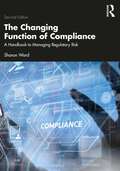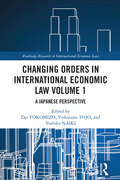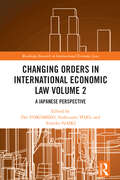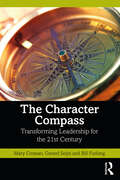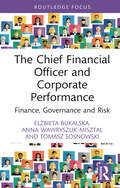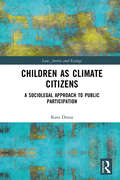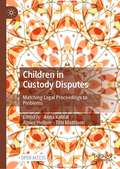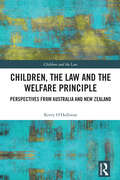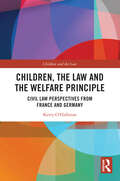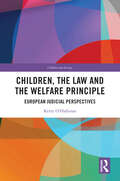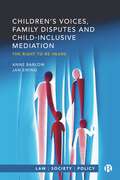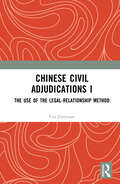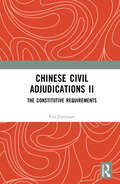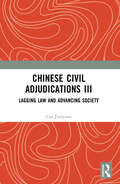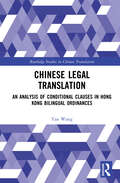- Table View
- List View
Casablanca's Conscience
by Robert Weldon WhalenA new look at a beloved classic film that explores the philosophical dynamics of CasablancaCelebrating its eightieth anniversary this year, Casablanca remains one of the world’s most enduringly favorite movies. It won three Academy Awards for Best Picture, Best Director, and Best Adapted Screenplay. It is still commonly quoted: “We’ll always have Paris” and “Here’s looking at you, kid” And who can forget, “You must remember this…a kiss is just a kiss.” Yet no one expected much to come of this little film, certainly not its blockbuster stars or even the studio producing it. So how did this hastily cranked-out 1940s film, despite its many limitations, become one of the greatest films ever made? How is it that year after year, decade after decade, it continues to appear in the lists of the greatest movies ever produced? And why do audiences still weep when Rick and Ilsa part? The answer, according to Casablanca’s Conscience, is to paraphrase Rick, “It’s true.”Much has already been written about the film and the career-defining performances of Bogart and Bergman. Casablanca is an epic tale of love, betrayal, and sacrifice set against the backdrop of World War II. Yet decades later, it continues to capture the imagination of filmgoers. In Casablanca’s Conscience, author Robert Weldon Whalen explains why it still resonates so deeply. Applying a new lens to an old classic, Whalen focuses on the film’s timeless themes—Exile, Purgatory, Irony, Love, Resistance, and Memory. He then engages the fictional characters—Rick, Ilsa, and the others—against the philosophical and theological discourse of their real contemporaries, Hannah Arendt, Dietrich Bonhoeffer, and Albert Camus. The relationships between fictional and historical persons illuminate both the film’s era as well as perennial human concerns. Both the film and the work of the philosophers explore dimensions of the human experience, which, while extreme, are familiar to everyone. It’s the themes that resonate with the viewer, that have sustained it as an evergreen classic all these years.
The Case for Palestine: Why It Matters and Why You Should Care
by Dan KovalikIn 1948, the State of Israel was founded. While the philosophy of Zionism that advocated for a Jewish homeland in what was then known as Palestine dates back to 1897, the creation of Israel in 1948 was justified by the terrible crime of the Holocaust committed by Nazi Germany during WWII. Many defenders of Israel would like us to believe that the creation of Israel was a peaceful process on a barely populated land, however, this is far from true. Rather, the creation of Israel was accompanied by what is known by the Palestinians as the Nakba(catastrophe)—an operation in which 700,000 Palestinians were violently expelled from their land and their homes. Since that time, Israel has continued to usurp more and more land from the Palestinians who they falsely portray as a people without a history and without a culture. Israel has been particularly cruel to the people of Gaza—70 percent of whom are refugees from the 1948 Nakba. Gaza has been converted by Israel into what some call a giant open-air prison surrounded by barbed wire. It is in this context that we are currently witnessing the tragic violence between Israel and the people of Gaza—violence on a scale not seen in this land since the Nakba of 1948. Indeed, many Palestinians are calling this a second Nakba, with around 1.5 million Palestinians already displaced and thousands killed. All of this is being accomplished by Israel with critical military and diplomatic support from the United States. This second Nakba is also being facilitated by the mainstream press that both downplays and justifies what many believe to be genocidal violence against the Palestinian people. The Case for Palestine is written as a counternarrative, with the hope that, if the truth is told, this violence and displacement can be stopped before it is too late; before Gaza is no more.
A Case Study for Computer Ethics in Context: The Scandal in Academia
by Michael James Heron Pauline Helen BelfordAimed at addressing the difficulties associated with teaching often abstract elements of technical ethics, this book is an extended fictional case study into the complexities of technology and social structures in complex organizations. Within this case study, an accidental discovery reveals that the algorithms of Professor John Blackbriar are not quite what they were purported to be. Over the course of 14 newspaper articles, a nebula of professional malpractice and ethical compromise is revealed, ultimately destroying the career of a prominent, successful academic.The case study touches on many topics relevant to ethics and professional conduct in computer science, and on the social structures within which computer science functions. Themes range from the growing influence of generative AI to the difficulties in explaining complex technical processes to a general audience, also touching on the environmental consequences of blockchain technology and the disproportionate gender impacts of Coronavirus. Each new revelation in the case study unveils further layers of complexity and compromise, leading to new technical and social issues that need to be addressed.Directly aimed at making ethics in the digital age accessible through the use of real-world examples, this book appeals to computer science students at all levels of the educational system, as well as making an excellent accompaniment to lecturers and course convenors alike.
Cases in Clinical Forensic Psychology
by Margo C. WattClinical forensic psychology is defined by the application of clinical psychology – assessment, diagnosis, treatment, and consultation – in legal contexts. The term captures the integration of clinical psychology as an applied professional discipline and forensic psychology as an experimental discipline. Cases in Clinical Forensic Psychology offers a series of case studies that allow readers to take an up-close and personal look at the criminal justice system in Canada. Clinical forensic psychologist Margo C.Watt examines the particulars of each case, including the biological, psychological, social, cultural, and legal factors. The book takes an evidence-based approach and highlights how the science of clinical forensic psychology informs all aspects of criminal cases: police investigative techniques, eyewitness testimony, pretrial publicity, jury selection and decision-making, forensic evaluations, psychological autopsies, mental health in corrections, and mo.re. Examining incidents ranging from false confessions to wrongful convictions to deaths in custody and the criminals who got away, Cases in Clinical Forensic Psychology questions how and why these events happened and considers what we can learn from them.
Catastrophe Ethics: How to Choose Well in a World of Tough Choices
by Travis RiederHow to live a morally decent life in the midst of today's constant, complex choices In a world of often confusing and terrifying global problems, how should we make choices in our everyday lives? Does anything on the individual level really make a difference? In Catastrophe Ethics, Travis Rieder tackles the moral philosophy puzzles that bedevil us. He explores vital ethical concepts from history and today and offers new ways to think about the &“right&” thing to do when the challenges we face are larger and more complex than ever before. Alongside a lively tour of traditional moral reasoning from thinkers like Plato, Mill, and Kant, Rieder posits new questions and exercises about the unique conundrums we now face, issues that can seem to transcend old-fashioned philosophical ideals. Should you drink water from a plastic bottle or not? Drive an electric car? When you learn about the horrors of factory farming, should you stop eating meat or other animal products? Do small commitments matter, or are we being manipulated into acting certain ways by corporations and media? These kinds of puzzles, Rieder explains, are everywhere now. And the tools most of us unthinkingly rely on to &“do the right thing&” are no longer enough. Principles like &“do no harm&” and &“respect others&” don&’t provide guidance in cases where our individual actions don&’t, by themselves, have any effect on others at all. We need new principles, with new justifications, in order to navigate this new world. In the face of consequential and complex crises, Rieder shares exactly how we can live a morally decent life. It&’s time to build our own catastrophe ethics.
Causation in Insurance Contract Law (Contemporary Commercial Law)
by Meixian SongCausation is a crucial and complex matter in ascertaining whether a particular loss or damage is covered in an insurance policy or in a tort claim, and is an issue that cannot be escaped. Now in its second edition, this unique book assists practitioners in answering one of the most important questions faced in the handling of insurance and tort claims. Through extensive case law analysis, this book scrutinises the causation theory in marine insurance and non-marine insurance law, and provides a comparative study on the causation test in tort law. In addition, the author expertly applies causation questions in concrete scenarios, and ultimately, this book provides a single volume solution to a very complex but essential question of insurance law and tort law. Thoroughly revised and updated throughout to include the Insurance Act 2015, several landmark cases and potential impacts of the Covid-19 pandemic, the second edition also features an introduction re-written to clarify elementary and central questions of causation in insurance law and tort. Additionally, it also provides three brand new chapters on Factual Causation and Legal Causation, Causation and Interpretation, and Causation and Measure of Losses to provide a deeper and more thorough analysis, comparing academic approaches and juridical approaches to addressing causation issues in insurance claims. This book is an invaluable and unique guide for insurance industry professionals, as well as legal practitioners, academics and students in the fields of insurance and tort law.
The Centenary of the Irish Free State Constitution: Constituting a Polity? (Palgrave Modern Legal History)
by Laura Cahillane Donal K. CoffeyThis book deals with the role, development, and legacy of the first Constitution of independent Ireland within the wider context of the establishment of the State. After decades of relative neglect, the 1920s have been receiving increased attention from historians recently thanks to the centenary of the State’s foundation. This book continues this trend of re-examination of this period and looks at key themes, such as the establishment of institutions under the Irish Free State Constitution and the focus on the ideals of popular sovereignty and democracy. It does so from novel and cross-disciplinary perspectives, and it also looks at areas which have received little to no previous attention; from individual aspects like property rights, the Irish language and environmental rights to aspects such as opposition and partition.
Challenging Cases in Clinical Research Ethics
by Benjamin S. Wilfond Devan M. Duenas Liza-Marie Johnson Holly A. TaylorClinical research ethics consultation has emerged in the last 15 years as a service to those involved in the conduct of clinical research who face challenging issues for which more than one course of action may be justified. To respond to a growing field and need for opportunities to share knowledge and experience, the Clinical Research Ethics Consultation Collaborative, established in 2014, holds monthly webinars for its 90 members to present their most challenging cases to each other and engage in substantive discussion. Every year, the group selects the four most interesting cases with accompanying commentaries for publication in the American Journal of Bioethics. This timely book brings together these cases and commentaries under a range of common themes for the first time, creating a permanent collection in book format that encourages and supports readers to gain a better understanding of the ethical challenges that they may face, and providing them with a convenient and reflective resource to reference in their own deliberations. Key Features: • Comprehensive collection of cases and commentaries, chosen to reflect the range of issues faced by clinical researchers and oversight committees and illustrate the diversity of analysis that can arise • Supplemented by short introductions to each section • Focus on ethical rather than regulatory issues • Essential reading for graduate students in bioethics and post-doctoral bioethics fellows, and useful for all participants in training grants that are funded by either NIH or NSF Presenting challenging cases to stimulate reflection, the book provides invaluable guidance to clinicians in training and in practice and to investigators, bioethics consultants, regulators, and oversight bodies.
The Change Agent: Transforming an Underperforming Internal Audit Department (Security, Audit and Leadership Series)
by Hernan MurdockJohn Taylor has been hired to transform the underperforming internal audit unit at InSports. The auditors are not reviewing what the audit committee and executive leadership consider essential for the organization’s success, their methodology is subpar, and their relationships with their clients are strained. The audit committee has been patient, but not anymore. Their mandate is clear: make clear improvements in one year or the function will be outsourced. This is the story of a visionary leader who needs a strategy to transform processes and deliver better results for stakeholders at all levels within the organization. The audit committee, all levels of management, and employees expect more from internal audit. Now, John must lead the group through 12 challenging months as they focus on what matters most when performing audit and advisory services. They must communicate results faster and better, leverage existing quality control and data analytics techniques, and, with every encounter, help the organization address strategic, operational, compliance, and financial risks. With similarities to "The Goal" and "The Phoenix Project" and leveraging Kotter’s 8-Step Process for Leading Change, follow John and the internal audit team from Boston to New York, San Francisco, London, and Buenos Aires, as they address almost insurmountable challenges in their transformation journey.
The Changing Function of Compliance: A Handbook to Managing Regulatory Risk
by Sharon WardAs risks arising within the business environment grow in size and complexity, so too do the regulatory requirements put in place to manage them. The pace of regulatory change is itself a significant business risk, and compliance departments are under increasing pressure to keep up with the change and adapt their organisations accordingly. This new edition of what has become an indispensable guide to regulation compliance brings readers up to date with changing areas of focus and provides guidance for regulated firms and regulators alike. The Changing Function of Compliance considers the relationship between regulation and compliance as well as key influences on both, offering insight into the effectiveness of current approaches and addressing practical compliance challenges. It explains the purpose and development of regulatory risk management and the existing regulatory environment, and provides a detailed exploration of the compliance function, explaining how the role might be strengthened and how best to approach the role to enable it to be effective. This practical and accessible handbook includes a mix of hands-on advice, examples and research based on the experiences of practitioners, educators and regulators drawn from across a wide range of jurisdictions and sectors. This book is an essential read, whether you are concerned about the growing and changing implications of regulatory risk, the benefit of leveraging additional value from your compliance function or your own compliance role or ways of transforming and sustaining the function to ensure its continued relevance to the business.
Changing Orders in International Economic Law Volume 1: A Japanese Perspective (Routledge Research in International Economic Law)
by Dai Yokomizo Yoshizumi Tojo Yoshiko NaikiThese two groundbreaking volumes look at complex legal issues in the changing global economy from the perspective of Asia and/or Japan. Contributors scrutinize the past, present, and future and discuss what the global legal order in economic fields could be like by navigating uncertain and turbulent times. The books address six main themes: (1) Polarization and diversification of values, progress of regionalism and restructuring of multilateral rules, (2) Full-scale arrival of the digital economy and its impact, (3) Empowerment of private persons/entities, (4) Reconsideration of the concept of “territorial jurisdiction”, (5) Law of national security and rule in emergency situations, and (6) Values of Sustainable Development Goals (SDGs) in trade and investment liberalization rules. The book also examines various legal problems under the COVID-19 crisis and suggests how the post COVID-19 global economic order will be from the perspective of Asia and/or Japan. This comprehensive insight will shed light on the intertwined and complex phenomena of the world economy and allow readers of business law and international law to have a better understanding of this volatile era.
Changing Orders in International Economic Law Volume 2: A Japanese Perspective (Routledge Research in International Economic Law)
by Dai Yokomizo Yoshizumi Tojo Yoshiko NaikiThese two groundbreaking volumes look at complex legal issues in the changing global economy from the perspective of Asia and/or Japan. Contributors scrutinize the past, present, and future and discuss what the global legal order in economic fields could be like by navigating uncertain and turbulent times. The books address six main themes: (1) Polarization and diversification of values, progress of regionalism and restructuring of multilateral rules, (2) Full-scale arrival of the digital economy and its impact, (3) Empowerment of private persons/entities, (4) Reconsideration of the concept of “territorial jurisdiction”, (5) Law of national security and rule in emergency situations, and (6) Values of Sustainable Development Goals (SDGs) in trade and investment liberalization rules. The books also examine various legal problems under the COVID-19 crisis and suggest how the post-COVID-19 global economic order will be from the perspective of Asia and/or Japan. This comprehensive insight will shed light on the intertwined and complex phenomena of world economy and allow readers of business law and international law to have a better understanding of this volatile era.
The Character Compass: Transforming Leadership for the 21st Century
by Mary Crossan Gerard Seijts Bill FurlongA guide to transforming leadership for the 21st century, this is a book about a powerful and practical framework that leaders can use to help their organizations thrive, prosper, and improve the world around them: leader character. Developed through extensive research, teaching, and outreach over the past decade, leader character is the foundation that leaders rely upon to help them make their most critical judgments. This book carries forward the authors’ important work to the implementation stage on both the individual and organizational levels. Based on the authors’ interactions with organizations in the public, private, and not-for-profit sectors around the world, they offer practical roadmaps for implementing leader character in such areas as leadership development, strategy, manifesting purpose, culture-building, executive recruitment and HR practices, EDI, risk management, and other key corporate activities. The result of these implementations is nothing less than sustained organizational excellence. Leader character is the compass that helps leaders steer their organizations through real, positive, and lasting change. This actionable book will earn its place on the bookshelves of professionals and students in talent management, leadership development, HR, and organizational development, as well as leaders from the public, private, and not-for-profit sectors.
The Chief Financial Officer and Corporate Performance: Finance, Governance and Risk (Routledge Focus on Economics and Finance)
by Elżbieta Bukalska Anna Wawryszuk-Misztal Tomasz SosnowskiFinancial management encompasses a set of complex activities that should be performed by a professional financial manager. Some financial decisions are riskier than others, and as such can result in higher or lower profitability. This risk-return trade-off is the key aspect of financial management. Furthermore, a financial director’s propensity to take risks can lead to less or more conservative financial decisions.This study firstly provides theoretical issues on financial management and the results of previous research, while the second part is empirical, showing the methodology and results of the authors’ research. Apart from CFO risk attitude, the book also examines CFO power. The book highlights the importance of the position of financial managers in companies and demonstrates that financial decisions are the reflection of decision-makers’ characteristics. Additionally, the book provides evidence of whether the COVID-19 crisis has increased or decreased the impact of CFO characteristics on financial decision-making and firm performance.The book will attract the attention of researchers and students of corporate finance and accounting and also contains many valuable tips and insights for practitioners.
Children as Climate Citizens: A Sociolegal Approach to Public Participation (Law, Justice and Ecology)
by Kata DozsaThis book provides a socio-legal analysis of the public participation of children in climate change matters, whilst developing a range of tools through which their participation can be increased. Climate change affects young people in many ways: causing severe threats to child survival, health and wellbeing, food security and nutrition, and access to education. But this book maintains that children and youth are not to be identified solely with their vulnerability to climate change. They are also key stakeholders in the sustainable implementation of long-term climate change policies, and their inclusion in decision-making processes is a measure of intergenerational equity. Children’s rights law is vague about the right to public participation or the environmental rights of children as such. In response, this book examines the often-informal network of pathways through which the public participation of children takes place: from high level conferences and governance structures to grassroots youth movements and climate change litigation. Exploring the difficulties, but also the opportunities and aspirations of children as citizens challenging the current climate change regime, the book proposes legal and policy tools for children’s participation in global climate change governance, as it outlines a concept of children’s climate citizenship. This book will appeal to scholars in the areas of sociolegal studies, environmental and climate change law, children’s rights and social movements, as well as policy makers and young people with interests in climate activism.
Children in Custody Disputes: Matching Legal Proceedings to Problems
by Anna Kaldal Agnes Hellner Titti MattssonThis open access book explores how legal proceedings in and out-of-court can be matched to the complex problems underlying disputes concerning child custody, residence and contact between parents. It focusses in particular on Nordic experiences of in and out-of-court mechanisms as means of resolving custody disputes. The contributors are internationally renowned and experienced researchers from the legal, psychological, and sociological fields who provide empirical as well as legal perspectives. They examine central legal, ethical and knowledge-based dilemmas in custody dispute proceedings. The findings speak to an international audience and suggest ways how to best realize the interests of the child. It transcends disciplinary, institutional, and jurisdictional boundaries in search of new knowledge.
Children, the Law and the Welfare Principle: Perspectives from Australia & New Zealand (Children and the Law)
by Kerry O'HalloranThis book contrasts and compares the different application of the law relating to the welfare interests of children in Australia and New Zealand including, respectively, the Indigenous and Māori children of those countries. It does so by applying the same matrix of indicators to explore jurisdictional differences between welfare interests and rights in the contexts of public family law (civil – care and protection etc and criminal – youth justice etc); private family law (matrimonial, adoption etc); and hybrid public/private family law (wardship, adoption from state care etc). By profiling the nations in accordance with the same indicators it reveals important jurisdictional differences in the extent to which welfare interests or rights determine how the law is currently applied to children in Australia and New Zealand.
Children, the Law and the Welfare Principle: Civil Law Perspectives from France and Germany (Children and the Law)
by Kerry O'HalloranThis book contrasts and compares the different application of the law relating to the welfare interests and rights of children in France and Germany. It does so by applying the same matrix of indicators to explore jurisdictional differences between welfare interests and rights in the contexts of public family law (civil – care and protection etc and criminal – youth justice etc); private family law (matrimonial, adoption etc); and hybrid public/private family law (wardship, adoption from state care etc). By profiling the nations in accordance with the same indicators it reveals important jurisdictional differences in the extent to which welfare interests or rights determine how the law is currently applied to children in France and Germany. This volume will be of interest to academics and researchers engaged in law, legal studies and social policy, and also to policymakers, administrators, and professionals working within child welfare systems.
Children, the Law and the Welfare Principle: European Judicial Perspectives (Children and the Law)
by Kerry O'HalloranThis book continues the themes addressed by its five predecessors in this series by examining the role of the principle of the welfare interests of the child as addressed in international legislation and by international courts.It provides a record of the key cases in the development of the principle as articulated primarily by the European Court of Human Rights (ECtHR) and complemented by rulings of the Court of Justice of the European Union (CJEU), and the United Nations Committee on the Rights of the Child (UN CRC). It identifies and assesses themes arising from the many decades of ECtHR cases dealing with issues affecting the welfare interests and rights of children as referred to the Court from the 46 Member States that comprise the Council of Europe. By differentiating between the functions of the welfare principle and those of children’s rights – in the public (care, protection, and control), in the private (matrimonial, adoption, etc.), and in the hybrid (adoption from state care, etc.) sectors of family law – it reveals how the law relating to children is changing across Europe. By examining the international framework of legislation and related caselaw it identifies and assesses the themes in that law as they have unfolded over time.In addition to a digest of international cases and legislation – that identifies and tracks the role of the welfare principle and the emerging rights of children – lawyers, academics, and other researchers will find a wealth of information on how the law has evolved to reflect corresponding changes in social mores. For those interested in politics and social policy, there is much illuminating evidence on how the law has balanced this principle relative to others – such as proportionality and subsidiarity – within both civil and criminal contexts.
Children’s Voices, Family Disputes and Child-Inclusive Mediation: The Right to Be Heard (Law, Society, Policy)
by Anne Barlow Jan EwingePDF and ePUB available open access under CC-BY-NC-ND licence. Recent legislative changes in England and Wales have eroded children’s ability to exercise their article 12 UNCRC rights to information, consultation and representation when parents separate. However, children’s voices may be heard through child-inclusive mediation (CIM). Considered from a children’s rights perspective, this book provides a critical socio-legal account of CIM practice. It draws on in-depth interviews with relationship professionals, mediators, parents and children, to consider the experiences, risks and benefits of CIM. It investigates obstacles to greater uptake of CIM and its role in improving children’s wellbeing and agency. Exploring the culture and practice changes necessary for a more routine application of CIM, the book demonstrates how reconceptualising CIM through a children’s rights framework could help to address barriers and improve outcomes for children.
China Arbitration Yearbook (China Arbitration Yearbook)
by Yifei LinThis book presents a selection of the latest arbitration cases, materials, and commentaries from China. It aims to provide information on the theory and practice of arbitration combined. It is intended to provide readers with a useful resource to guide them when they encounter actual China-related arbitration cases. This book is a valuable resource for all practitioners concerned with international and foreign-related arbitration matters in China, global law firms, companies engaged in multinational business, jurists, and academics.
Chinese Civil Adjudications I: The Use of the Legal-Relationship Method
by Cui JianyuanAs the first volume of a three-volume set that provides critical reviews of typical civil cases in China, this book focuses on the methodology of legal relations and their importance in adjudication.It is crucial to identify and determine the specific legal relationship that encompasses certain civil rights or obligations. This allows for the application of appropriate or analogous legal norms. By using these norms, along with the entire body of law or rule of law, it becomes possible to identify all the civil rights and obligations within that legal relationship and to understand their interrelationships. This leads to the proper handling of controversial cases. In the nine cases discussed in this volume, the method of legal relations was overlooked to varying degrees. Therefore, an important goal of this volume is to encourage both legal practice and theoretical research to take note of and implement the methodology of legal relations.The book will appeal to scholars and students interested in China's civil litigation, civil law system and judicial reform, and comparative law.
Chinese Civil Adjudications II: The Constitutive Requirements
by Cui JianyuanAs the second volume of a three-volume set that critically reviews typical civil cases in China, this book focuses on the importance of constitutive requirements of legal rules.A legal rule consists of constitutive requirements and legal effects. The constitutive requirements should trigger specific legal effects and not lead to unintended consequences. If they do not, the application of a legal rule may not produce the desired result. Any change in the constitutive requirements should result in a corresponding change in the legal effects. A mismatch between the two can lead to unfairness and injustice. In the nine cases discussed in this volume, these principles were either seriously overlooked or given insufficient attention, with various negative consequences.The book will appeal to scholars and students interested in China's civil litigation, civil law system and judicial reform, and comparative law.
Chinese Civil Adjudications III: Lagging Law and Advancing Society
by Cui JianyuanAs the final volume of a three-volume set that critically examines typical civil cases in China, this book focuses on resolving conflicts between outdated laws and an advancing society.Laws may become obsolete over time, or their relevance may be greatly diminished. With social changes and changes in the social system, it becomes inevitable to update laws. In China's reform and opening-up era, the social relations governed by civil and commercial laws are constantly evolving, resulting in noticeable changes. However, the enacted and effective civil and commercial laws may not immediately keep pace with these changes. Against this background, it may not always be appropriate to apply the law mechanically, especially in individual cases. Judgments in particular cases may be based on the details of those cases, guided by fundamental principles, and may disregard certain specific provisions in order to achieve fairness and justice. Some of the nine cases discussed in this volume have successfully practiced these principles, but most still have room for criticism and improvement.The book will appeal to scholars and students interested in China's civil litigation, civil law system and judicial reform, and comparative law.
Chinese Legal Translation: An Analysis of Conditional Clauses in Hong Kong Bilingual Ordinances (Routledge Studies in Chinese Translation)
by Wang YanChinese Legal Translation analyses and investigates the Chinese translation of conditional clauses introduced by various introductory words in Hong Kong bilingual ordinances within the framework of descriptive translation studies and translation typology. This book explores the text typology of Hong Kong bilingual ordinances and highlights differences and similarities between different translations of conditional clauses in the Hong Kong context. Based on both quantitative and qualitative analysis of conditional clauses of the Companies Ordinance, the book summarises the frequency of introductory words of conditional clauses and generalises guiding patterns for writing conditional clauses and translating conditional clauses. The book is significant in providing both theoretical foundations for legal translation and practical guidance for translating legal conditional clauses. This book is primarily targeted for scholars and professionals who are interested in legal writing and legal translation, as well as for students and practitioners in legal translation.
